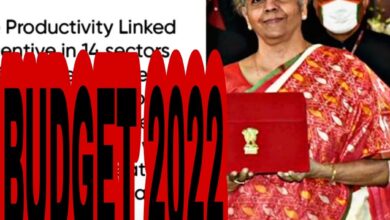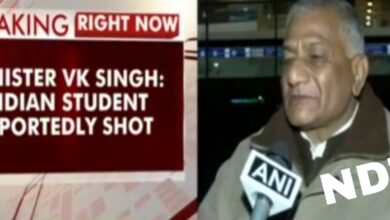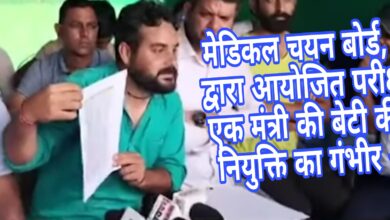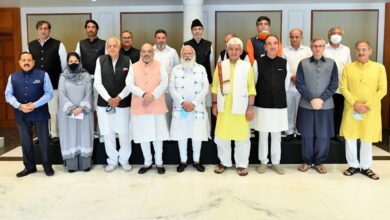Laudable pause of Apex court on IPC’s colonial era 124 A giving a new ray of hope !
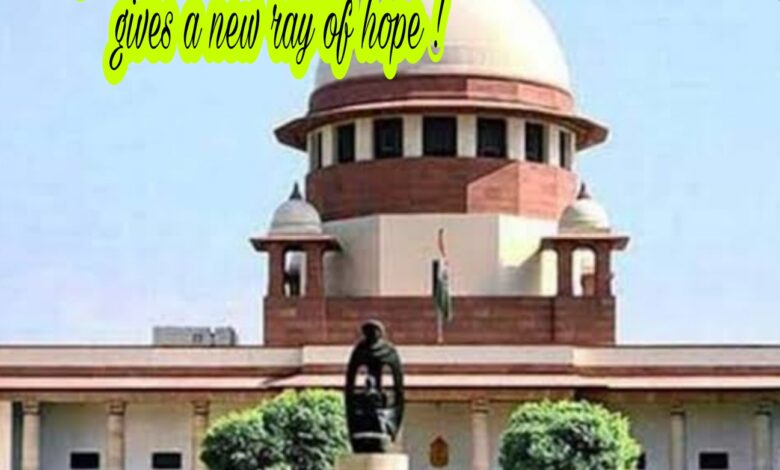
After the blatant misuse of the IPC’s 124 A, the colonial era law against social activists, journalists and even opposition leaders of political parties with tremendous opposition, the ruling political dispensation has taken an initiative to re – examine it with the 48 th Chief justice of India N. V. Ramanna led bench comprising of justice Satyanarayan and Hima Kohli putting it in abeyance till the new amended act formally comes into existence.

The supreme court’s directives to the central as well as state governments not to take any coercive action against those charged under this colonial era 152 year old act not registering any FIR including stopping of legal proceedings n jail etc it also said that the fresh victims of this act against whom sedition cases have been lodged can approach courts to seek relief by applying for bail and the courts concerned should provide them relief taking into account the apex court’s orders in this regard. The first journalist to get instant relief was Aman of News 18 from Jaipur Rajasthan who was slapped with sedition and other serious cases in connection with his reporting n programme on the burning of temples in Rajasthan.
This decision of the supreme court chief justice led bench is being lauded terming it as a historic decision.
There had been lot of media hype and protests by various journalists and social organisations including intellectuals expressing their apprehensions of possible arrests and slapping of sedition charges for their dissenting views and free speech.
There had been several cases of sedition registered against journalists, political leaders, student activists and even professors arrested on other serious charges after raids in their houses with police claiming to have sufficient proofs etc.
About a year or two ago, cases of sedition were slapped against veteran journalists and a Congress leaders of standing n repute viz Rajdeep Sardesai, Mrinal Pandey, Zafar Agha, Paresh Nath, Vinod K. Nath , Anant Nath and Shashi Tharoor etc who had after several protests approached the Supreme Court for relief. The apex court bench headed by the then chief justice of India S. A. Bobde had then issued notices and sought replies from the central government for these actions while the then leading lawyer for Congress leader Shashi Tharoor n journalists Kapil Sibal had requested the bench to defer coercive actions against the petitioners.
According to the police the crime of these leaders and journalists was, they had tweeted a fake news about the death of a farmer during the tractor rally on Republic day while the farmers agitation was in progress, their tweets being highly misleading and provocative according to Delhi police.
The FIR against them were filed in five states on serious charges viz sedition, criminal intimidation, promoting enmity, provoking to created disturbance breaking public peace, criminal conspiracy, and outraging religious feelings etc unambiguously giving an impression of harrassing and intimidating them for their dissenting views and free expression.
Cases were lodged against these senior journaoists in Gurugram, Bengaluru, Noida, and Madhya Pradesh.
Another senior journalist, political analyst and news anchor Vinod Dua who is no more, was also trapped in a sedition case by lodging an FIR in Bihar. Even FIRs were lodged in Himachal Pradesh.
So far, among others those booked under serious, sedition laws are Siddique Kampann and Wangkhem, both journalists, professor Sudha Bharadwaj, activist, Kangana, Ranaut, actor with High security cover, Varavara Roa, activist, Ravi Rana and Navneet Rana, MP n MLA from Maharashtra, Hardhik Patel, Congress leader, Umar Khalid, earlier in JNU, student activist, Aisha Sultana, Film maker and Sharjeel Imam, activist.
In addition to these according to an HT report three students from Kashmir were booked in UP over raising pro Pakistan slogans during a cricket match, 13 people charged with sedition and other serious charges for raising provocative slogans in Srinagar’s Jama Masjid, Zahoora Zargar, Natasha Narwal, Dewangana Kalita, and ex councillor Tahir Hussain booked for the said charges including rioting etc for their involvement in Delhi riots, 14 Aligarh Muslim University students booked for sedition etc for raising Pro Pakistan slogans including over aged frail and weak activist Stan Swamy booked in Elgar Parishad case having died in jail in 2021.
There had been protests by the various journalists organisations in the national capital with Press Club of India, Editors Guild of India, Press Association, India Women Corps Association activists holding protest marches, sit ins and meetings demanding withdrawal of sedition charges against journalists.
According to the National Crime Records Bureau about 399 cases of sedition have been filed at the pan India level since 2014 but the conviction rate has been merely 3.3% which unambiguously states that the law has been widely misused leading to supreme court deferring it for the time being till the central government comes out with a new amended law as desired by the government, giving relief to those who have been arbitrarily slapped with sedition misusing clause 124 A, of IPC, a 152 year old law introduced during colonial era. But it still remains to be seen whether the amendments done would really be in the interest of democratic dissent, free speech and expression without any bias and prejudices for strengthening true Democratic traditions n ethical values.
Kindly recall that the chief justice of Supreme Court headed three judge bench was hearing the petitions filed by Editors Guild of India, Trinamool Congress MP Mahua Moitra and five others clubbed together by the apex court.
In an affidavit filed in supreme court the government side requested the three judge bench that since the matter is being actively considered by the government to review the obsolete section 124 A of IPC, the hearing should be stopped forthwith but the chief justice of the Bench N. V. Ramanna turned down the plea and deferred any action regarding lodging of FIR, coercion or action against the those being victim of section 124 A, a colonial era law, including giving chance to seek bail from respective courts also directing judges to consider the order of supreme court while taking decision on such appeals.

